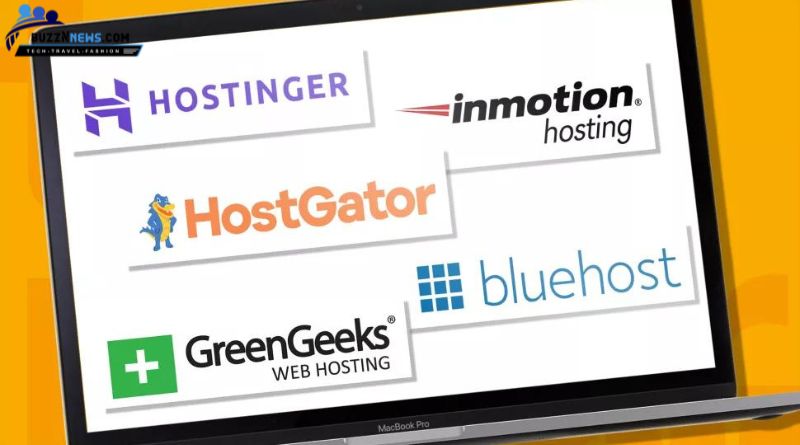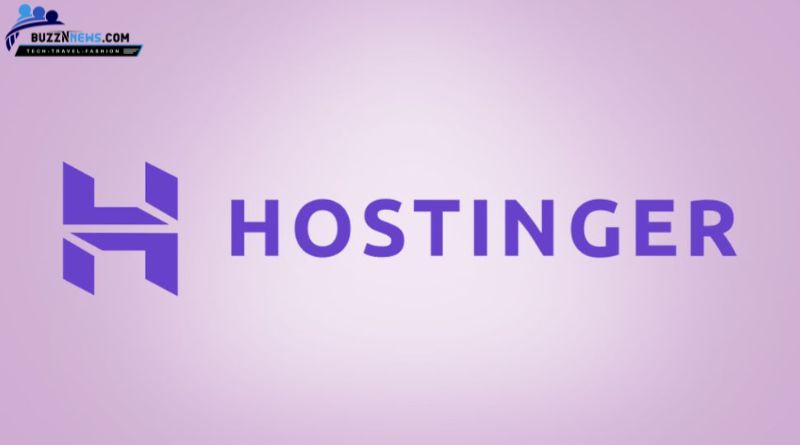We’ve tried and evaluated the finest web hosting services for your specific requirements.
Businesses and website designers want the greatest web hosting service to improve the speed of their sites, and we’ve searched through over 160 providers to discover the best of the best.
We evaluate product lines, compare control panels, investigate their tools, develop a site or two, test each customer care option, and do extensive uptime and speed testing throughout our web hosting service tests.
We understand that this takes time, which is why our team of experienced reviewers has already done all of the hard work. We’ve also tried and evaluated each web host on characteristics like simplicity of use, pricing, and trustworthiness, as well as others, by purchasing domain names and putting up test websites to host on each of the web hosting platforms mentioned below.
We carefully selected the twelve best web hosting providers, compared their strengths, weaknesses, and pricing, from over 160 web hosting and website builder(opens in new tab) providers we’ve reviewed extensively on our site, in order for you to make a more informed decision on which host is best for your online needs.
The best web hosting in 2022
We’ve tried and evaluated the finest web hosting services for your specific requirements.
Businesses and website designers want the greatest web hosting service to improve the speed of their sites, and we’ve searched through over 160 providers to discover the best of the best.
We evaluate product lines, compare control panels, investigate their tools, develop a site or two, test each customer care option, and do extensive uptime and speed testing throughout our web hosting service tests.
We understand that this takes time, which is why our team of experienced reviewers has already done all of the hard work. We’ve also tried and evaluated each web host on characteristics like simplicity of use, pricing, and trustworthiness, as well as others, by purchasing domain names and putting up test websites to host on each of the web hosting platforms mentioned below.
We carefully selected the twelve best web hosting providers, compared their strengths, weaknesses, and pricing, from over 160 web hosting and website builder(opens in new tab) providers we’ve reviewed extensively on our site, in order for you to make a more informed decision on which host is best for your online needs.
The top 2022 web hosting providers

1.Bluehost – Best web hosting overall (opens in new tab)
SPECIFICATIONS
Free domain: Yes Free SSL: Yes24/7customer support: Yes
REASONS TO PURCHASE
- +Plans with several features
- +Easy-to-use web dashboard
- +Professional live chat assistance
- +Low costs in the first year
AVOIDANCE REASONS
- -There is no monthly billing (minimum one-year plans)
- -The VPS and Dedicated plans are not customizable.
Bluehost is our #1 web hosting service because of its extensive feature set, simple setup, dependable network, and excellent live chat assistance to keep your site operating properly.
We evaluated their 10GB single-site shared hosting plan, which we suggest for hosting beginners since it is $2.75 per month paid yearly ($9.99 on renewal) and includes a website builder, WordPress integration, free CDN, and a free domain and SSL for the first year. When you upgrade, you receive unlimited sites and storage, automatic backups, and other benefits (depending on the plan.)
Bluehost’s starting point WordPress plans are all the same pricing, but with minor feature differences. WordPress is already installed, so you can get started right away. We utilized the Bluehost Marketplace to uncover beautiful themes, feature-rich plugins, and other goodies. We were able to administer many WordPress sites from a simple web dashboard, and although the experienced live chat support agents were not the quickest to react, we were able to get the assistance we need once they were online. Another disadvantage is that Bluehost does not provide monthly paying and requires a one-year commitment for its hosting services.
If you want something a bit easier, Bluehost’s Website Builder (starting at $2.95 per month paid yearly) allows you to create professional-looking websites with nothing more than dragging and dropping. It’s simple to use yet strong enough that the higher plans ($24.95 per month invoiced yearly) can even develop feature-rich online shops.
Experts will appreciate the value VPS and flexible dedicated hosting, as well as hosted WooCommerce options, business-friendly Google Workspace hosting, domain registration, and even migration help to simply convert an existing site to your Bluehost account.
.
2-Hostinger is the best WordPress hosting provider.
This European web server is perfect for WordPress hosting.
SPECIFICATIONS
- free domain.
- Unlimited SSL for free
- there is 24-hour customer service.
REASONS TO BUY
- +Excellent value +High-end features in even the most basic plans
- +Complimentary automatic WordPress migration
- +100% uptime throughout testing
- +Card payments, Google Pay, PayPal, Alipay, and cryptocurrencies are all accepted.
REASONS TO AVOID
- -There is no dedicated hosting –
- -Only the most expensive options include daily backups, CDN, and SSH access.
Hostinger promotes itself on value, and the service specifications explain why after just a few seconds of browsing. Its beginning The All-In-One package costs $2.99 per year ($8.99 on renewal), but it includes 100GB of storage, unmetered traffic, free SSL, a free domain for the first year, support for 100 websites, a choice of six data centers, automatic backups, managed WordPress, 1GB email storage, a virus scanner, spam filter, and more.
Hostinger also does not conceal a slew of hidden fees in the fine print. SSL, for example, will not cost you anything additional beyond the first year: it is free for the life of your account.
The WordPress support provided by Hostinger is a huge plus. If you just want to host a tiny blog, the basic account includes a single site, 30GB of storage, 100GB of monthly bandwidth, and free SSL for as low as $1.99 per month on the four-year plan (a steal at $95.52 up front), increasing to $3.99 on renewal.
Even the business-friendly WordPress Pro account (with support for 300 websites, 200GB storage, unlimited bandwidth, daily backups, Cloudflare CDN, and more) costs just $11.59 a month on the four-year plan, and $19.99 on renewal.
However, unlike Bluehost, Hostinger does not provide dedicated hosting plans, which may be a problem for commercial customers that want the quickest possible speeds. However, its cloud hosting options provide you with specialized system resources, which the business says may offer 4x the performance.
In terms of power, a broad selection of VPS options rival dedicated servers, with the $77.99 per month high-end plan giving an 8-core, 16GB RAM monster with an enterprise-level 12TB of monthly bandwidth. Our testing revealed that this web host is of high quality.
3- HostGator – Best shared web hosting provider
Looking for the ideal Shared web hosting match? This supplier is a must-see.
SPECIFICATIONS
- free domain.
- free SSL is available.
- there is 24-hour customer service.
REASON TO BY:
- +Unmetered bandwidth and disc space
- +45-day money-back guarantee
- +Live chat assistance
- +During our evaluation, there was no downtime.
AVOIDANCE REASONS:
- -Limited VPS/Dedicated Server Configuration Options
- -Only cloud hosting plans have a 99.9% uptime guarantee.
HostGator(opens in new tab) has evolved into a top-tier web hosting service, offering solutions for every level of user.
Shared hosting is a feature for HostGator, as it is for Bluehost and Hostinger, with even the lowest Hatching plan having unlimited bandwidth and disc space, a free domain for a year, free SSL for the life of your plan, one-click WordPress installation, and an included website builder. There’s a 45-day money-back guarantee, and HostGator will even relocate a small website from your old spot to your new one for free.
Prices are reasonable as well, with the three-year plan costing $2.75 per month and the yearly plan costing $3.95 (both renew for $6.95).
HostGator’s WordPress plans are a touch more costly, with rates beginning at $5.95 per month for three years ($9.95 on renewal), but they also include important services like backups and virus protection, which are sometimes paid extras elsewhere.
More demanding customers may choose from three VPS and three dedicated hosting plans, and if you’re feeling adventurous, you can even create your own hosting company using HostGator’s reseller plans.
Their high-end models aren’t as customizable as others, and beginning costs are quite pricey, but specifications are decent, and you’ll certainly have more than enough power for most sites. In addition, HostGator only guarantees 99.9% uptime on cloud hosting services.
Regardless of the sort of hosting you need, the industry-standard cPanel, paired with HostGator’s own feature-rich web dashboard, performed a superb job of assisting us in managing our web space and account. And if you do run into troubles, don’t worry: HostGator’s phone and live chat assistance has addressed the majority of our issues in minutes.
4. GoDaddy – Best multilingual support web host
SPECIFICATIONS
Free domain: No Free SSL: Yes24/7 customer support: Yes
REASONS TO BUY:
- +Huge range of products
- +Flexible billing (1 month to ten year plans)
- +Linux and Windows hosting
- +Multilingual support
REASONS TO AVOID:
- -Above average prices for some products
- -Shared hosting has below-par server response times
GoDaddy, a web hosting behemoth with headquarters in the US, has an enormous selection of goods. There are many options for hosting, including shared, VPS, and dedicated servers; WordPress support for everything from basic personal blogs to fully functional web stores powered by WooCommerce; an intuitive website builder; email and Microsoft 365 hosting; domain registration; payment processing; point-of-sale systems; and the list goes on (and on, and on.)
GoDaddy offers four acceptable shared hosting packages. All of them come with daily backups, a variety of data centres in North America, Europe, and Asia-Pacific, as well as odd bonuses like a year of free Microsoft 365 mailboxes. The bottom two plans don’t offer any free SSL, and the cheapest purchased SSL certificate costs $94.99 per year, making them appear rather powerful in other respects.
The single site 100GB Economy plan for shared hosting costs $5.99 per month on the three-year plan and $8.99 on renewal, which is more expensive than other plans. However, GoDaddy’s billing policies are surprisingly pliable, and if you’re sure you’ll enjoy the service, you can lock in those savings with a five- or even ten-year plan. We discovered that shared hosting has subpar server response times, which made for a less than ideal testing experience because it took longer to fix the hosting problem we ran into.
We discovered that GoDaddy offers high-quality services for a reasonable price. An automatic installer instals WordPress and more than 150 other popular online programmes in a few clicks, and the well-designed web dashboard is simple to use. The industry-recognized cPanel provides all the tools you’ll need to administer your web space.
All of this worked out fine for us, but in the event that you do want assistance, GoDaddy more than meets your needs with its comprehensive knowledge base, multilingual live chat support, and phone support accessible in an astonishing 15+ languages.
How to Select a Web Hosting Services
It’s difficult to escape cryptic-sounding lingo in the web hosting industry. Even determining which sort of package you need requires some technical expertise (what exactly is a VPS, again?). But don’t worry: it’s a lot easier than it seems.
In truth, although it is beneficial to master a few hosting principles before purchasing, you do not need to spend any time on technical specifics. If all you know about hosting is that shared goods are slow but inexpensive, VPS plans are faster but somewhat more costly, and dedicated hosting is the fastest but may be quite expensive, you’re already off to a good start. It’s also worth noting that customer service is a critical consideration when it comes to selecting the best web hosting provider for you. After all, as a newbie, you’ll want to know that your selected supplier will be able to offer you with timely and relevant answers to your questions.
Of course, it helps if you can go a bit farther, which is why in this tutorial we’ll break down the many kinds of hosting available, explain who they’re for, and provide some purchasing recommendations. We guarantee it won’t hurt, and at the end you’ll have a far better notion of the hosting you need and what to look for when choosing a provider.
FAQs about the best web hosting service
What exactly are web hosting services?
If you’ve ever wondered, “What is a web hosting service, and how does it work?” We’ve produced a full explanation with all the information you’ll need to comprehend the service before deciding which one is best for your website’s requirements.
In a word, web hosting is a service that makes your website or web application available on the internet – and is often regarded as one of the most critical components required when developing any kind of website.
The sort of server space that you rent to keep your website’s data might be particularly designed based on the web hosting service you pick and the package you purchase from the provider.
What exactly is shared hosting?
Shared hosting is a straightforward arrangement in which numerous websites are hosted on the same web server (a type of computer.)
When you sign up for a shared hosting package, your provider will assign you some server space. You may then use that space to install WordPress, WooCommerce, or another programme, or just upload your own website. Purchase a domain name such as MySite.com and direct it to your web space, and your site will be accessible to the public.
One advantage of shared hosting is its ease of use. You don’t have to worry about server maintenance since your provider takes care of it. You just need to work on your own website.
Sharing a web server also means sharing expenses, and with hundreds of websites on the same server, it generally means rock-bottom pricing.
The main issue with shared hosting is that you share your server’s system resources such as CPU time, RAM, storage, and network connection. There’s just so much space on your server, and the more sites you have, the slower and less reliable your own website will be.
In many cases, shared hosting is still the best option. The shared option is great if you’re constructing a basic blog, a site for family, a local club, or anything with extremely minimal traffic where no one will notice if the site is a bit sluggish periodically. It’s quite simple to use, and many providers provide great services for approximately $2 to $4 per month.
However, if this is a more significant site, such as an online shop or a company website, a sluggish or unreliable website will drive people away. It is definitely worth upgrading to a more powerful system.
What exactly is VPS hosting?
VPS hosting is a sophisticated technique that separates a single physical server into several server environments.
Logging into a VPS gives you access to what seems to be the whole server. This is significantly more complicated than shared hosting, but it also provides far more control. You may install any programmes you want, change any server settings, and even replace the whole operating system if you want.
There will be other VPS environments on the same physical server (but not as many as with shared hosting), which may reduce your performance somewhat. However, you will have your own network bandwidth, RAM, storage, and CPU time. These will not be shared with other customers, so your site should have faster and more consistent performance than with shared hosting.
Upgrading is often simple as well. If your website traffic increases and you want more resources – more CPU time, more RAM, or a larger bandwidth allotment – you can usually add them to your plan with a single click and they’ll be accessible nearly quickly.This increased power comes with a cost, but it may be considerably lower than you expect. Hostinger’s cheapest shared hosting package is $1.99 per month for four years; their lowest VPS plan is $2.99 for the same period. It’s a pretty basic plan, but at $8.99 for a one-time month, it’s not too costly to evaluate whether a VPS is right for you.
What exactly is dedicated hosting?
A dedicated hosting plan, as the name implies, is one in which a physical server is devoted to a single customer. That means no more slowdowns caused by other accounts sharing bandwidth, RAM, or CPU time: the whole system is yours alone.
Because you are renting the full physical server, most providers will let you configure it with any hardware you want. You often have the option of selecting your CPU, storage drives and type (cheap and large capacity HDDs, smaller but quicker SSDs), operating system, bandwidth allotment, and other features. Assuming you have the money, you can frequently create some quite powerful systems (Hostwinds’ top-of-the-line dedicated server, for example, supports up to ten hard drives, if you can conceive of a reason to utilise them.)
This may be costly. Even budget providers like Namecheap charge $50-$60 a month for their most basic dedicated servers, while Liquid Web’s top-of-the-line business models can cost $500 or more (though they’re intended for large sites with millions of page visits per month).
Managing a dedicated server also requires more effort. If your server fails on shared hosting, the provider’s support staff should detect and repair or reboot it. But if you’re operating the server, you’re on your own unless you pay the provider to do it for you (see ‘What is managed hosting?’).
A dedicated plan, on the other hand, is undoubtedly the way to go if you really require top performance and total control over your server.
What exactly is WordPress hosting?
WordPress is a popular free platform for creating many types of websites, from a basic one-page offering to a blog, a professional company site, and even a complete online shop.
Many web hosting companies provide WordPress plans that simplify the process of setting up your site and often include tools to increase performance and keep the site operating smoothly.
When you purchase a plan, WordPress is normally pre-installed, so you won’t have to install it yourself. WP Engine has numerous elegant WordPress themes, enabling you to construct a beautiful site even if you have no design abilities. Most plans also make some attempt to automatically update WordPress with new fixes as they become available, minimising your site maintenance headaches.
If your WordPress requirements are minimal, you may not need a specialised WordPress hosting package. Most shared hosting plans provide simple WordPress installation and a few other useful tools, and Hostinger’s All-In-One shared hosting solution includes a slew of extras – automatic updates, WordPress site-building wizards, performance accelerators, and more – for as low as $2.99 per month.
What exactly is managed hosting?
Shared hosting accounts are normally extremely easy to use, but higher-end solutions such as WordPress, VPS hosting, and dedicated servers sometimes need a variety of maintenance activities. You may need to test and update WordPress plugins, apply operating system updates, identify and resolve server faults, and maybe reboot a server if it locks up or crashes.
If you choose a managed web hosting package, your hosting provider’s normal support staff will handle some or all of these chores. You’ll possibly save time and bother, and if issues arise, they’ll be handled quickly by the individuals most prepared to solve them.
Why would anybody do anything else if it sounds so good? Cost, mostly. For example, Hostwinds’ 4-core 8GB RAM VPS costs $59.99 fully managed but just $38.99 for the unmanaged DIY version, a significant savings.
Keep this in mind when comparing WordPress, VPS, or dedicated services from different hosting companies. Host A may seem to be the cheapest option, but are you comparing a managed plan to an unmanaged plan? Make careful to read the fine print.
There is no specific definition of ‘managed,’ so don’t think that having a managed plan implies you won’t have to conduct any maintenance. Every provider has their own definition of what is and isn’t covered, so check it out and make sure you understand precisely what is covered before you purchase.





